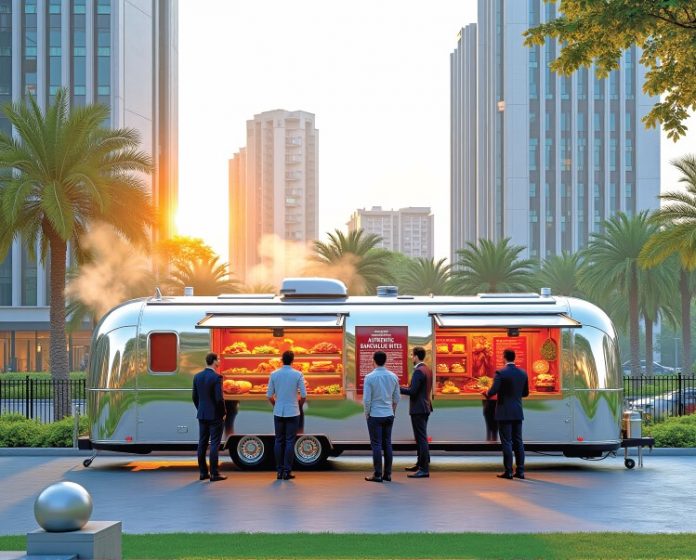Beauty of food trailers lies in their adaptability, offering tactile way to engage people, says Rajiv M Raghavendra Founder, TheBoxLab, stressing on its rising demand in events.
Janice Alyosius
As the MICE industry continues to evolve, stakeholders are turning to creative, immersive elements to elevate attendee engagement during events. One such rising trend is the use of food trailers. In an exclusive conversation with MICETalk, Rajiv M Raghavendra, Founder, TheBoxLab, shared how these mobile culinary hubs are reshaping event experiences—from logistics to local flavour. He opined, “Food trailers break away from traditional buffet format, providing an interactive milieu. They are cost-effective, low-maintenance, scalable and easy to customise as per theme or audience size. Their rise is largely driven by the increasing demand for immersive and memorable experiences at events.”
Q: In what innovative ways are venues using food trailers?
A: Venues are incorporating food trucks/trailers not just as a dining option but as a central feature of the guest experience. Some hotels use branded food trailers as mobile Food and Beverage (F&B) outlets at pool decks, courtyards, or during outdoor movie nights. Convention centres are using them to activate underutilised outdoor spaces, provide themed networking zones, or even support hybrid event breaks with mobile snack stations. They are also being used for ‘surprise-and-delight’ activations—like rolling in a dessert truck at the end of a long conference day.
Q: How do food trailers help promote local flavours and sustainability efforts?
A: Food trailers are a direct line to local culinary talent and artisans, offering authentic regional dishes that reflect the destination’s identity. Many trailers source locally, aligning with sustainable event goals. From zero-waste packaging to farm-to-truck concepts, food trucks support both eco-friendly and cultural narratives at events —something increasingly important to both planners and attendees.
Q: What are key logistical challenges you face and how do you overcome them?
A: Few common challenges that I have noticed include local licensing and permits, access to utility connections, and unpredictable weather. We mitigate these by working closely with venues and city officials in advance.
- Permissions and zoning: Venues may require special permits for mobile kitchens. So, coordination with local authorities and early planning is critical.
- Accessibility: Accessible terrain and proximity to power or water sources is a must. Some trailers have limited storage capacity for fresh water and wastewater storage, so pre-event site inspections and modular layouts can help overcome these hurdles.
- Weather conditions: Rain or heat can dampen the experience. Backup tenting, climate-control units, or indoor trailer setups help mitigate this risk.
- Power supply: Generators can be noisy or unsustainable. Many event planners require trailers to plug into venue power or use solar solutions.
Q: Looking ahead, how do you see role of food trucks evolving in the event industry?
A: Food trailers are evolving from simple catering solutions into multi-functional experiential tools. We are seeing them used as mobile brand activations, merchandise outlets, or even information kiosks at events. With tech integration—like ordering via apps or AI-driven personalisation—food trucks can deliver data-enhanced experiences
Stressing on the significance of food trailers in anchoring a brand roadshow, Raghavendra concluded, “As expectations for events continue to evolve, food trucks are well-positioned to meet demands for authenticity, flexibility, and impact.”
“Food trailers are evolving from simple catering solutions into multi-functional experiential tools.”














